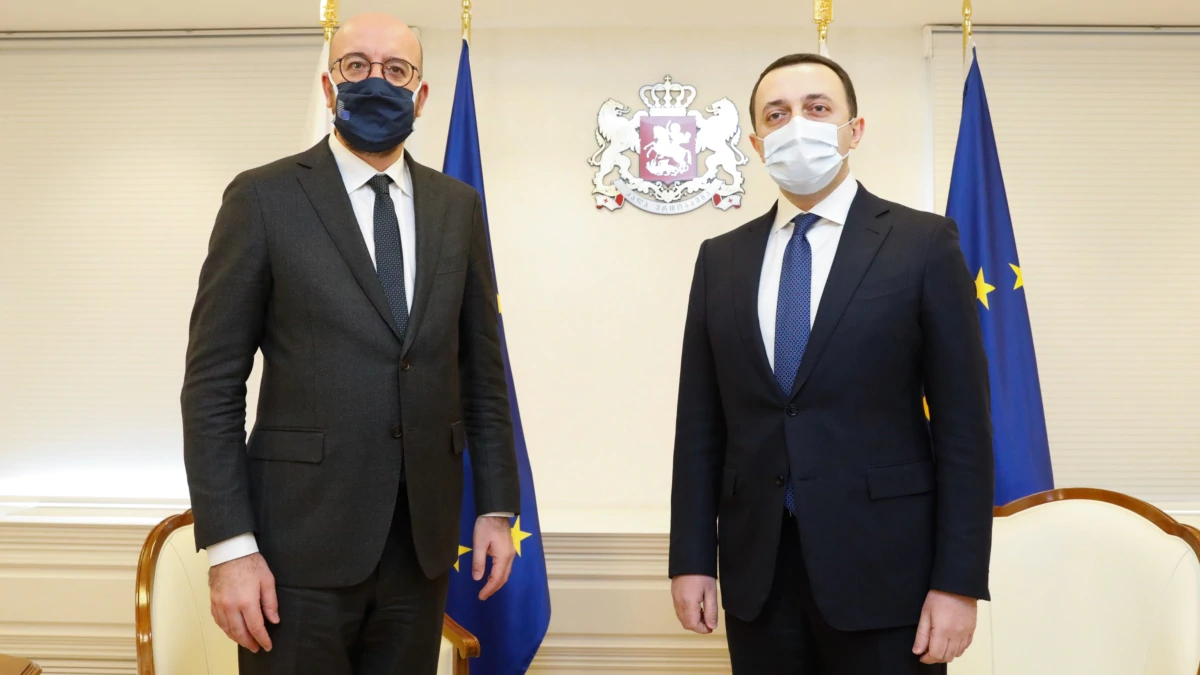
TBILISI — During a visit to Georgia, European Council President Charles Michel has called on the country’s political parties to engage in a dialogue to defuse an ongoing crisis sparked by last year’s general elections and exacerbated by the recent arrest of a top opposition leader.
Raising concerns about the “worsening crisis,” Michel said in Tbilisi on March 1 that the EU is calling on “all parties to step up their efforts to defuse the situation and come together to find common ground.”
Speaking at a joint news conference with Georgian President Salome Zurabishvili, he said that “political stability reinforced by an open democracy, by an efficient and independent judiciary, is essential to deepen the partnership” between Tbilisi and the bloc.
Georgia, a former Soviet republic, is a close U.S. ally and has aspirations of joining NATO and the EU, although membership in either organization is not imminent.
Michel also held talks with Prime Minister Irakli Garibashvili as part of his February 28–March 2 trip to the Georgian capital. He was also expected to meet with parliament speaker Archil Talakvadze and opposition leaders.
After Tbilisi, the EU official will head to the Ukrainian capital, Kyiv. He earlier visited Chisinau, Moldova’s capital.
Georgia’s opposition parties have refused to enter the new parliament to protest what they call the rigging of the October 31 parliamentary elections.
The crisis deepened after a court ruled last month to send Nika Melia, the leader of the United National Movement (UNM) party, to pretrial detention after he refused to pay an increased bail fee in a case denounced by the opposition as a political witch hunt.
Melia’s arrest on February 23, along with several opposition activists, has sparked mass anti-government protests in Tbilisi demanding their release and snap parliamentary elections.
Melia is accused of organizing “mass violence” during 2019 anti-government protests, a charge he rejects as politically motivated. The ruling Georgian Dream party denies that.
The 41-year-old politician faces up to nine years behind bars if convicted.
